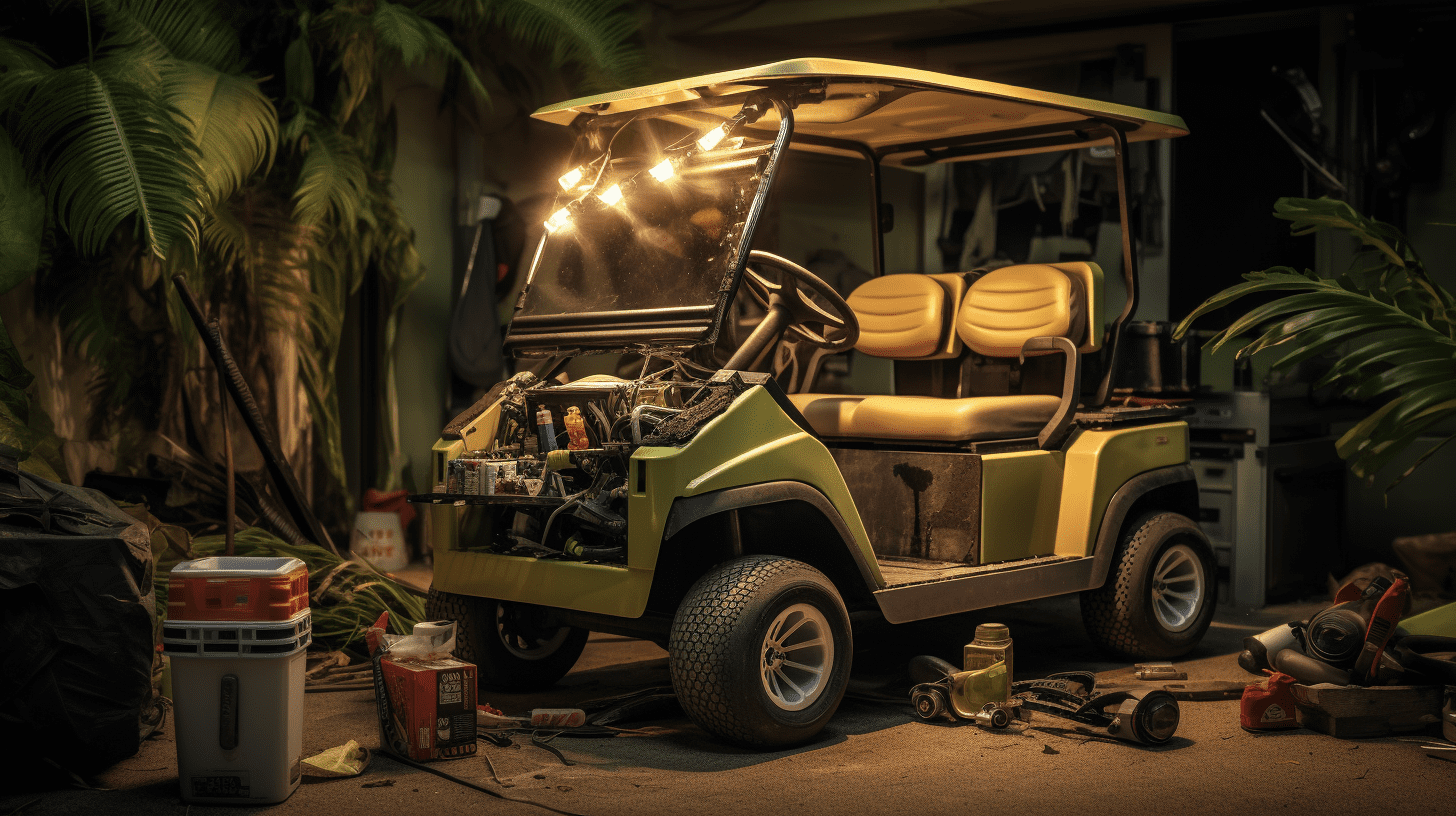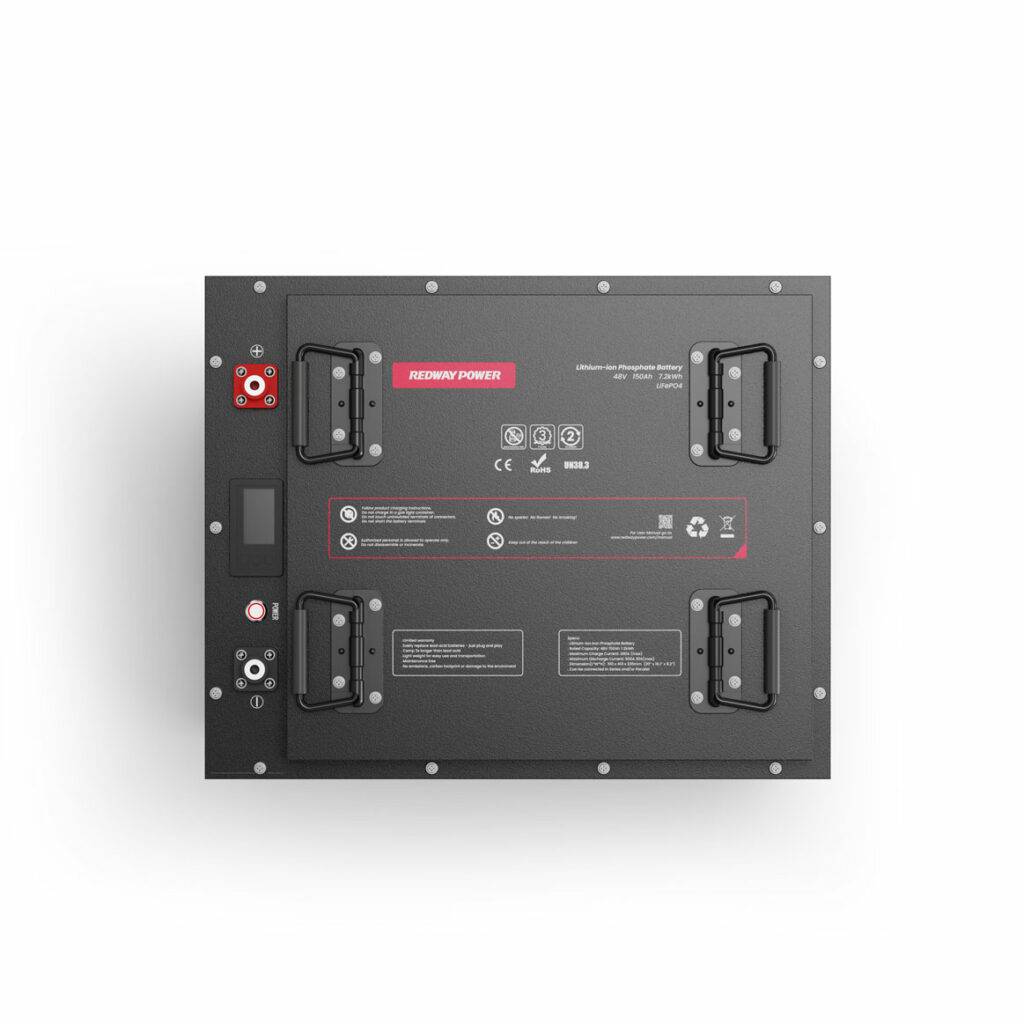Are you considering upgrading your golf cart or LSV to lithium batteries? If so, you’re probably looking to replace the lead-acid batteries to enjoy the numerous benefits of lithium power. Converting your golf cart to a lithium-ion battery can be a straightforward process, but it’s important to consider a few key factors before selecting the right lithium battery for your vehicle. Here’s everything you need to know to make an informed decision:

1. What Size Battery Do I Need?
When upgrading to lithium, it’s crucial to choose a drop-in replacement battery that matches the size of your existing lead-acid battery. The most common size for golf cart batteries is the GC2/GC8 group size. Opting for a lithium battery of the same size, such as RELION’s InSight Series™ 48V lithium golf cart battery, ensures a seamless installation without requiring any modifications to your battery compartments.
2. How Do I Determine My State of Charge?
Installing a fuel gauge is highly recommended to monitor the state of charge of your lithium battery. Voltage-based gauges are not accurate for lithium batteries, so it’s best to use a fuel gauge that receives real-time current data from all parallel connected battery CANs. This gauge calculates the remaining amp hours as a percentage, providing a reliable reading of your battery’s charge level.
3. How Do I Charge My Lithium Battery?
Selecting the right charger is essential for optimal performance and longevity of your lithium battery. Ensure that the charger you choose has the appropriate charge profile for lithium batteries. Check the voltage setpoints for your specific lithium battery and confirm that they align with the charger’s settings. If you’re unsure, reach out to the manufacturer for guidance.
4. Do I Need Battery Spacers?
If you’ve opted for a drop-in lithium solution that matches the GC2 size of your lead-acid batteries, it’s advisable to consider using battery spacers. These spacers fill the empty battery slots and allow you to use the existing battery hold-down in your vehicle. By using spacers, you can ensure proper installation and secure placement of your lithium batteries.
5. How Many Batteries Do I Need?
Unlike lead-acid batteries, where you must use a specific number of batteries to achieve the required voltage, with 48V lithium batteries connected in parallel, you can install the number of batteries based on the desired mileage range. You can use as few as two batteries or up to six batteries in a standard golf cart setup.
6. What’s the Energy Capacity?
When choosing a lithium battery, consider the energy capacity you need. RELiON’s InSight 48V battery, for example, offers 30-amp hours of capacity. The advantage of lithium batteries is their scalability, allowing you to add more batteries to increase the power output and mileage range.
7. Are There Any Additional Accessories I Should Consider?
In addition to a fuel gauge and battery spacers, other accessories that can enhance your lithium battery setup include a remote button and a CAN splitter cable. The remote button allows you to turn on and off all batteries connected in parallel with a single button. The CAN splitter cable ensures proper communication between the batteries and the fuel gauge.
8. Can I Upgrade My Existing Charger?
It’s crucial to ensure that your existing charger is compatible with lithium batteries. If your charger can be loaded with the correct algorithm for lithium batteries, you may not need to purchase a new one. However, if your charger is not compatible, it’s recommended to invest in a charger specifically designed for lithium batteries to ensure optimal charging performance.
9. What Are the Benefits of Lithium Batteries?
Upgrading to lithium batteries offers numerous advantages. Lithium batteries are lighter, more compact, and have a longer lifespan compared to lead-acid batteries. They also provide higher energy density, faster charging times, and better performance in a wide range of temperatures. Additionally, lithium batteries require less maintenance and can be discharged to a lower state of charge without damaging their lifespan.
10. Where Can I Find Wholesale Lithium Battery Suppliers?
If you’re interested in purchasing lithium batteries in bulk, there are various wholesale suppliers available. Conduct thorough research to find reputable suppliers with a proven track record of delivering high-quality lithium batteries at competitive prices. Consider factors such as product reliability, warranty terms, and customer reviews before making your decision.


